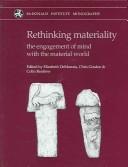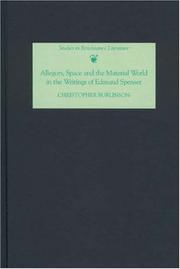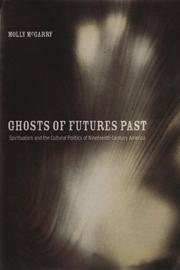| Listing 1 - 4 of 4 |
Sort by
|

ISBN: 1902937309 9781902937304 Year: 2004 Volume: *4 Publisher: Cambridge McDonald Institute for Archaeological Research
Abstract | Keywords | Export | Availability | Bookmark
 Loading...
Loading...Choose an application
- Reference Manager
- EndNote
- RefWorks (Direct export to RefWorks)
Materiality --- Mind --- Archaeological research --- Material world --- Archaeology and art --- Cognition and culture --- Material culture --- Materiality. --- Mind. --- Archaeological research. --- Material world. --- Art and archaeology --- Art
Book
ISBN: 1787443027 1843845075 Year: 2018 Publisher: Suffolk : Boydell & Brewer,
Abstract | Keywords | Export | Availability | Bookmark
 Loading...
Loading...Choose an application
- Reference Manager
- EndNote
- RefWorks (Direct export to RefWorks)
The hope of salvation and the fear of damnation were fundamental in the Middle Ages. Surprisingly, however, this topic has received limited attention in the study of Old Norse literature. This book addresses this lacuna in the scholarship, from two major perspectives. Firstly, it examines how the twin themes of damnation and salvation interact with other more familiar and better explored topoi, such as the life-cycle, the moment of death, and the material world. Secondly, it looks at how issues relating to damnation and salvation influence the structure of texts, with regard both to individual scenes and poems and sagas as a whole. The author argues that comparable features and patterns reoccur throughout the corpus, albeit with individual variations contingent on the relevant historical and literary context.
Old Norse literature --- Salvation in literature. --- History and criticism. --- Authority. --- Charismatic Movements. --- Community. --- Damnation. --- Death. --- Family. --- Fear. --- Hope. --- Last Things. --- Life-Cycle. --- Material World. --- Middle Ages. --- Old Norse Literature. --- Religious. --- Salvation. --- Spiritual. --- Structure.

ISBN: 1843840782 9786612080197 1282080199 1846154448 Year: 2006 Volume: 17 Publisher: Suffolk : Boydell & Brewer,
Abstract | Keywords | Export | Availability | Bookmark
 Loading...
Loading...Choose an application
- Reference Manager
- EndNote
- RefWorks (Direct export to RefWorks)
This book provides a radical reassessment of Spenserian allegory, in particular of 'The Faerie Queene', in the light of contemporary historical and theoretical interests in space and material culture. It explores the ambiguous and fluctuating attention to materiality, objects, and substance in the poetics of 'The Faerie Queene', and discusses the way that Spenser's creation of allegorical meaning makes use of this materiality, and transforms it. It suggests further that a critical engagement with materiality [which has been so important to the recent study of early modern drama] must come, in the case of allegorical narrative, through a study of narrative and physical space, and in this context it goes on to provide a reading of the spatial dimensions of the poem - quests and battles, forests, castles and hovels - and the spatial characteristics of Spenser's other writings. The book reaffirms the need to place Spenser in his historical contexts - philosophical and scientific, military and architectural - in early modern England, Ireland and Europe, but also provides a critical reassessment of this literary historicism.Dr CHRISTOPHER BURLINSON is a Research Fellow in English at Emmanuel College, Cambridge.
Symbolism in literature --- Space in literature --- Material culture in literature --- Spenser, Edmund, --- Symbolism --- Allegory. --- Space perception --- In literature. --- Symbolism. --- Spatial perception --- Perception --- Spatial behavior --- Figure-ground perception --- Geographical perception --- Personification in literature --- Immerito, --- Spencer, Edmund, --- Spenser, Edmond, --- Spenserian allegory. --- The Faerie Queene. --- battle. --- castle. --- forest. --- hovel. --- material world. --- quest. --- spatial dimensions.

ISBN: 9786612359309 1282359304 0520934067 9780520934061 9780520252608 0520252608 9781282359307 9780520274532 0520274539 6612359307 Year: 2008 Publisher: Berkeley : University of California Press,
Abstract | Keywords | Export | Availability | Bookmark
 Loading...
Loading...Choose an application
- Reference Manager
- EndNote
- RefWorks (Direct export to RefWorks)
Ghosts of Futures Past guides readers through the uncanny world of nineteenth-century American spiritualism. More than an occult parlor game, this was a new religion, which channeled the voices of the dead, linked present with past, and conjured new worldly and otherworldly futures. Tracing the persistence of magic in an emergent culture of secularism, Molly McGarry brings a once marginalized practice to the center of American cultural history. Spiritualism provided an alchemical combination of science and magic that called into question the very categories of male and female, material and immaterial, self and other, living and dead. Dissolving the boundaries between them opened Spiritualist practitioners to other voices and, in turn, allowed them to imagine new social worlds and forge diverse political affinities.
Spiritualism --- Religion and culture --- Culture and religion --- Culture --- Communication with the dead --- Dead, Communication with the --- Metapsychology --- Spiritism --- Occultism --- History --- United States --- Religion --- Religion and culture - United States - History - 19th century. --- Religion and culture --United States --History --19th century. --- Spiritualism - United States - History - 19th century. --- Spiritualism --United States --History --19th century. --- United States - Religion - 19th century. --- United States --Religion --19th century. --- 19th century. --- academic. --- afterlife. --- american culture. --- american history. --- american spiritualism. --- belief. --- communication. --- cultural history. --- cultural studies. --- faith. --- ghosts. --- immaterial. --- magic. --- marginalized groups. --- marginalized voices. --- material world. --- medium. --- new religion. --- occult. --- otherworldly. --- parlor game. --- political. --- politics. --- religion. --- religious studies. --- scholarly. --- secular. --- secularism. --- social history. --- social studies. --- spirits. --- spiritualism. --- spiritualist. --- spirituality. --- uncanny.
| Listing 1 - 4 of 4 |
Sort by
|

 Search
Search Feedback
Feedback About
About Help
Help News
News